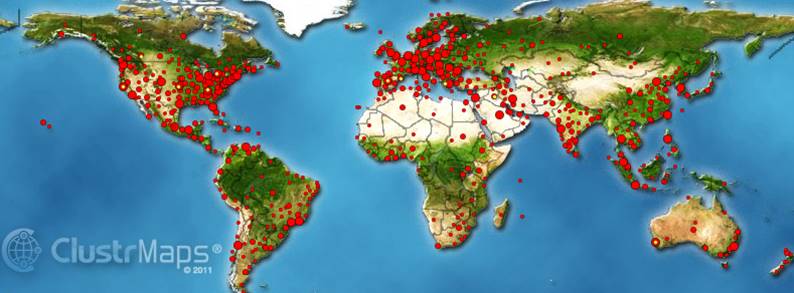

|
SADA Main Page
Free Downloads
Visualization
Sampling
Data Exploration
Risk Assessment
Geospatial Analysis
Geospatial Simulation
Decision Analysis
Cost Benefit Anaylsis
MARSSIM
TRIAD
Other Tools
Technical Support
Documentation
Coming Soon
Training
Education
Applications
Join SADA User Group
RAIS
Bugs
People
Email Us
Current SADA Webpage Vistors Previous SADA Webpage Visitors  |
Spatial Analysis and Decision Assistance
|
Home PageNew Facebook PageIf you have a facebook account, like us to get information and to interact with us a bit more directly.Collaboration AnnouncementWe are pleased to announce that the Oak Ridge National Laboratory (ORNL, www.ornl.gov) will be formally collaborating with us on upcoming versions of SADA. The ORNL is a large, multi-program science and technology laboratory within the U.S. Department of Energy national laboratory system. Dr. Robert Stewart, principle investigator for SADA, will continue to direct the SADA program as member of the ORNL Geographic Information Science and Technology Group (www.ornl.gov/sci/gist/) and as joint faculty member within the Geography Department at the University Of Tennessee. The SADA project is based at UT in the Institute for Environmental Modeling of the Department of Ecology and Evolutionary Biology. Development Needs and Uses of SADAThe ORNL/UT collaboration on SADA is being initiated by creating a list of development needs for the next version of SADA. We welcome SADA users to contribute their ideas and suggestions to us, since users are often best suited to comment on the weaknesses and strengths of the program. We are also working with federal agencies and others that have expressed interest in funding improvements to the code. Good examples of SADA in action assist our efforts by providing evidence to federal agencies that financially support SADA of documented benefits to a broad array of stakeholders. Some of you have shared your stories with us already, but we would like to hear more. Please email suggestions and stories alike to the Email Us link on the side bar. Download NowVersion 5.0.78 has been released. You can download version 5.0.78 at the
Download page. Training OpportunitiesClick here for information on training opportunities.Quick OverviewSpatial Analysis and Decision Assistance (SADA) is free software that incorporates tools from environmental assessment fields into an effective problem solving environment. These tools include integrated modules for visualization, geospatial analysis, statistical analysis, human health risk assessment, ecological risk assessment, cost/benefit analysis, sampling design, and decision analysis. The capabilities of SADA can be used independently or collectively to address site specific concerns when characterizing a contaminated site, assessing risk, determining the location of future samples, and when designing remedial action. A fully functional freeware version is available on the download page of this web site. SADA is developed in The Institute for Environmental Modeling at the University of Tennessee . SADA is an evolving freeware product targeted to individuals performing environmental assessments
in support of decision-making. The primary objective is to create a user friendly software package
for environmental characterization and decision-making. This problem solving environment applies and integrates
a number of algorithms that can either be used in a stand alone
fashion or in the direct support of performing a site assessment. The software
processes and produces information in a clear, transparent manner, directly supporting decision processes, and
can serve as a communication tool between technical and non-technical audiences. The end result is that SADA
can be used to
facilitate decisions about a given site in a quick and cost effective
manner. SADA has a strong emphasis on the spatial distribution of contaminant data and
is therefore best suited for anyone who needs to look at data within
a spatial context, such as:
Ultimately, our objective is to provide environmental assessors with a unified software package that links practical characterization tools to decision-making capabilities (particularly human health and ecological risk assessment). The integration of the human health risk capabilities of SADA with modules for ecological risk assessment can help accomplish EPA's mission as outlined in the Ecological Research Strategy to: "develop and demonstrate a multiple pathway, multiple chemical model that integrates human health and ecological cumulative exposure and risk assessments." In addition, using the same problem solving environment for human health and ecological risk assessment assures consistency between the two assessment efforts in terms of the data that is used and the decision rules that are addressed. Our intention is to maintain it as a free product that will not depend on other software products (other than Windows). Check out the new MARSSIM tools in SADA!! We've added easy to user Quick Check Tools for both investigators and regulators. Click on any of the topics at left to view more detailed information in each area. A special thanks to the US Nuclear Regulatory Commission who enthusiastically sponsored this latest version of SADA Join the SADAusers email list for questions and user support by sending a blank email to
sadausers-subscribe@yahoogroups.com.
|
SADA Main Page Free Downloads Visualization Sampling Data Exploration Risk Assessment Geospatial Analysis Geospatial Simulation Decision Analysis Cost Benefit Anaylsis MARSSIM TRIAD Other Tools Technical Support Documentation Coming Soon Training Education Applications Join SADA User Group RAIS Bugs People Email Us
